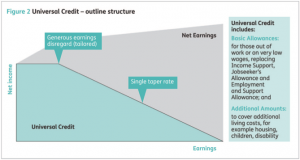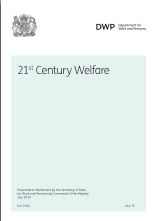 Via 21st Century Welfare, the Coalition seeks views on proposals for welfare reform. Since I gave time to work for the Centre for Social Justice, these reforms are close to my heart: we must take people out of the present intergenerational cycles of broad spectrum poverty.
Via 21st Century Welfare, the Coalition seeks views on proposals for welfare reform. Since I gave time to work for the Centre for Social Justice, these reforms are close to my heart: we must take people out of the present intergenerational cycles of broad spectrum poverty.
Iain Duncan Smith’s statement in the main paper is encouraging, particularly the central section:
Too often governments have tried to tackle poverty but ended up managing its symptoms. The changes outlined here are based on a recognition that poverty cannot be tackled through treating the symptoms alone.
The benefits system has shaped the decisions of the poorest in a way that has trapped generation after generation in a spiral of dependency and poverty. This has cost the country billions of pounds every year in cash payments and billions more in meeting the social costs of this failure.
The only way to make a sustainable difference is by tackling the root causes of poverty: family breakdown; educational failure; drug and alcohol addiction; severe personal indebtedness; and economic dependency.
Through the Centre for Social Justice, Iain Duncan Smith has set the trajectory of this government’s poverty-fighting programme, a programme which aims to build a healthy society.
The paper sets out “a fair system that protects those in greatest need”, with proposals which:
• establish a fairer relationship between the people who receive benefits and the people who pay for them and, as crucially, between the people on out-of-work benefits and the people who work in low-paid jobs;
• target support more efficiently, supporting and protecting those in vulnerable circumstances;
• help to divert people away from the pathways that lead to poverty and give people living in poverty a route out; and
• support our wider goal of strengthening families, supporting carers and enabling disabled people to have an equal role in society.
The other aims of reform are affordability, rewarding work and personal responsibility, reduced worklessness, simplification and a reduction in delays, error and fraud. The paper sets out several ways in which these aims could be realised before inviting comment.
You can provide feedback by following the instructions in the annex to the main paper, which may be found here.

See also
- 21st Century Welfare, DWP
- Breakthrough Britain and other publications by the Centre for Social Justice
- Benefit Simplification by David Martin for the Centre for Policy Studies


















